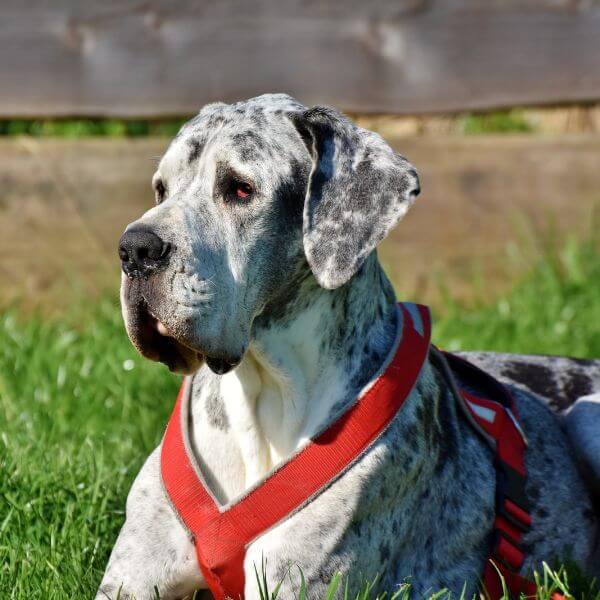PetMeetly helps you find a perfect breeding mate for your Great Dane
PetMeetly is the leading platform for Great Dane dog owners and breeders to discover the ideal breeding partner for their beloved dogs. Petmeetly is intended to make the process of locating a good breeding mate as fast and simple as possible.
You may use PetMeetly to find prospective breeding mates for your Great Dane depending on your region. To connect you with the finest potential breeding mates, our powerful search algorithm takes into account your location as well as other characteristics such as your pet’s age, gender, and health.
Petmeetly is simple to use and navigate. You may create a profile for your pet, complete with images and details about their health and disposition. You may also go through other Great Danes’ profiles on the site and contact their owners to explore prospective breeding options.
You can be certain that you’ll discover the ideal breeding partner for your Great Dane on PetMeetly, who will help enhance your pet’s genetic health and create healthy, robust pups. Join us now to begin your hunt for the ideal breeding mate.
Tips for breeding a Great Dane
This dog breeding checklist provides a comprehensive guide for responsible breeding practices and can help ensure the health and well-being of the parent dogs and their puppies.

- Pre-breeding Health Assessment
A comprehensive health assessment is necessary before breeding Great Danes to identify underlying health issues that may affect the breeding process or the puppies’ health. This assessment should include a physical examination, blood tests, and a reproductive evaluation.
- Alternative Breeding Methods
Alternative breeding methods such as artificial insemination, frozen semen, and embryo transfer can increase breeding success rates and preserve desirable traits.
- Epigenetics
Epigenetics study how environmental factors affect gene expression, and breeders can optimize environmental conditions to potentially influence desirable traits and improve overall puppy health.
- Companion Animal Blood Donor Programs
Great Danes make ideal candidates for companion animal blood donor programs, saving other animals’ lives and promoting their own Great Danes’ health and well-being.
- Early Neurological Stimulation
Early neurological stimulation exposes puppies to sensory stimuli at an early age to promote brain development and enhance adaptability, improving the overall health and behavior of Great Danes, and benefiting breeders.
Pedigree Analysis
Coat
Size
Temperament
Intelligence
Health
Grooming
Energy
Meet our Great Danes
Finding a reputable Breeder
Finding a trustworthy breeder for your Great Danes is critical to their health and well-being. Here are some pointers for finding a Great Dane breeder:
- Check for health screenings:
Great Danes are prone to heart and hip dysplasia, among other conditions. Thus, it’s critical to locate a breeder who checks the health of their breeding dogs. The breeder has to be able to present you with proof that their dogs have undergone screenings and be free of serious health problems.
- Temperament:
Great Danes make wonderful family pets because of their loving and gentle nature. Finding a breeder who emphasizes temperament in their dog breeding is crucial. Information about the temperament of the breeding dogs and their offspring will be available from a reliable breeder.
- Find a breeder who loves the breed:
A breeder who is passionate about Great Danes will put more effort into raising healthy, content puppies. Choose a breeder who is knowledgeable about the breed and eager to address any of your concerns.
- Inquire about their breeding philosophy:
Ask the breeder about their breeding philosophy, including how they choose their breeding dogs and which characteristics they value most. Your aims for your Great Dane should be in line with the breeding philosophy of a good breeder.
- Request references:
Obtain references from past puppy purchasers from the breeder. You should have no trouble obtaining recommendations from a respectable breeder who can discuss their experiences purchasing puppies from that breeder.
- Inspect their facilities:
When visiting a Great Dane breeder, it’s important to assess their facilities for cleanliness and organization. A reputable breeder should maintain a tidy and hygienic environment, and ensure that their dogs have adequate space and resources. You can request to see where the dogs are housed and observe their living conditions, looking out for any indications of neglect, such as unclean or cramped living spaces.
- Meet the Breeding Dogs:
When you visit the breeder, look over their facilities to make sure they are tidy and maintained. The dogs ought to have access to a lot of room, pristine water, and nutritious food.
Spend some time getting to know the breeder’s breeding dogs to obtain a sense of their temperaments and dispositions. A trustworthy breeder will allow you to meet their canines and respond to any queries you may have. - Look for a strong health guarantee:
A Trustable Breeder Should Provide a Strong Health Guarantee For Their Puppies: Seek for a Strong Health Promise. The puppy’s first few months of life should be covered by the guarantee if there are any severe health difficulties. When making a puppy purchase decision, it is crucial to read and comprehend the conditions of the health guarantee.
